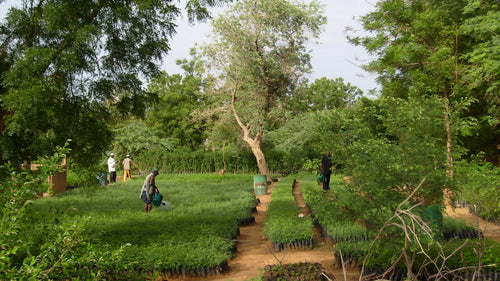PRENUMERERA & SPARA 20%
FRI FRAKT
Kommer du ihåg ditt lösenord?
Subscribe to receive a guaranteed shipment of formula every month.
Enjoy a {{ discount_amount }} discount on product throughout your subscription.
Change or cancel your subscription at any time!


Tree-Nation är en ideell organisation som arbetar med att återplantera skog över hela världen. Vi är ett mångkulturellt team som utgår ifrån både Bryssel och Barcelona. Jag grundade Tree-Nation 2006 och det har varit en ganska lång resa eftersom intresset för hållbarhet har utvecklats mycket sedan dess. Vad vi gör är att hjälpa medborgare och företag delta i återplantering av skog och att vägleda dem i hållbarhetstänket.




Det faktum att vi förlorar träd varje år gör avskogningen till en av de värsta miljöbovarna just nu. Olika vetenskapliga studier visar att plantera träd är det billigaste och mest effektiva sättet att bekämpa klimatförändringarna. Utöver det så innebär plantering av träd andra fördelar så som att det renar vatten, motverkar undernäring, förhindrar översvämningar och det skyddar livsmiljöer för hundratals arter.
Skinome planterar träd i olika projekt runt om i världen, till exempel på Madagaskar, i Tanzania och i andra tropiska områden. Dessa områden är särskilt viktiga eftersom det är där träd växer som snabbast och därmed fångar upp koldioxid i snabbast takt. Det är också där vi har mest avskogning och flest djurarter. Dessutom är de tropiska regionerna några av de fattigaste i världen, vilket innebär att lokalbefolkningen inte har möjlighet att själva lösa problemet.
Jag förstår vad ni menar, vi har själva läst en hel del artiklar om detta ämne. Dessa artiklar hänvisar till en klassisk typ av trädplantage för trä- / cellulosaprojekt och det är inte den typ vi hanterar på Tree-Nation. I grund och botten kan du ha en plantage som är avsedd att producera bara ett trädslag, med syftet att skörda träden när de är mogna. Men det är inte vad vi gör. Vad vi gör är att återplantera. Det är som vad som helst i livet, mat kan vara hälsosam eller ohälsosam beroende på vilken typ av mat det handlar om. Problemet är att journalisterna som skriver artiklarna inte skiljer på olika trädplanteringsprojekt med anledning av att gräva efter skandaler i ett hett ämne.


Tree Nation
Tree-Nation grundades 2006 av Maxime Renaudin med mission att återskoga världen. Att plantera träd har visat sig vara en av de mest effektiva lösningarna för att bekämpa klimatförändringar.
Tack vare Tree Nations återplanterings- och bevarandeprojekt hjälper dem till att återställa skog, skapa jobb, stödja lokala samhällen och skydda den biologiska mångfalden.
För uppdateringar om våra projekt hos Tree-Nation och för mer information om hur många träd vi har planterat, besök vår Skinome-skog.